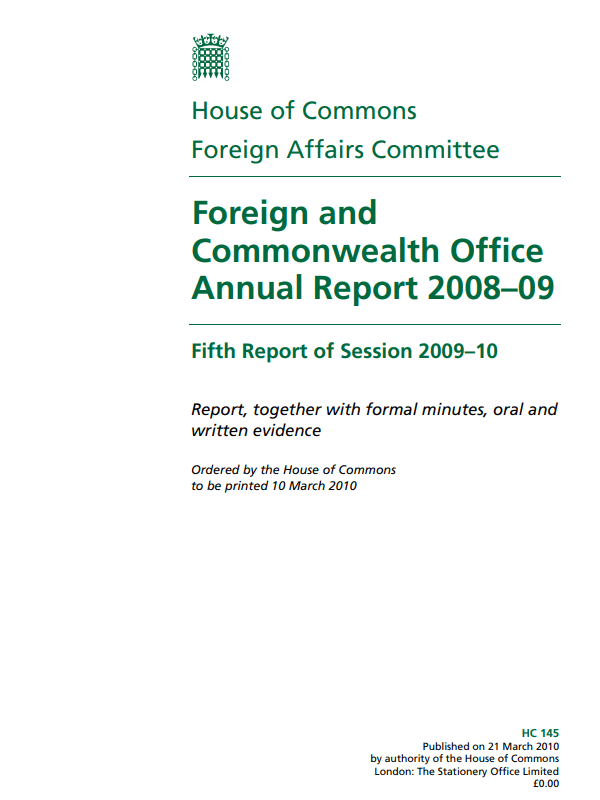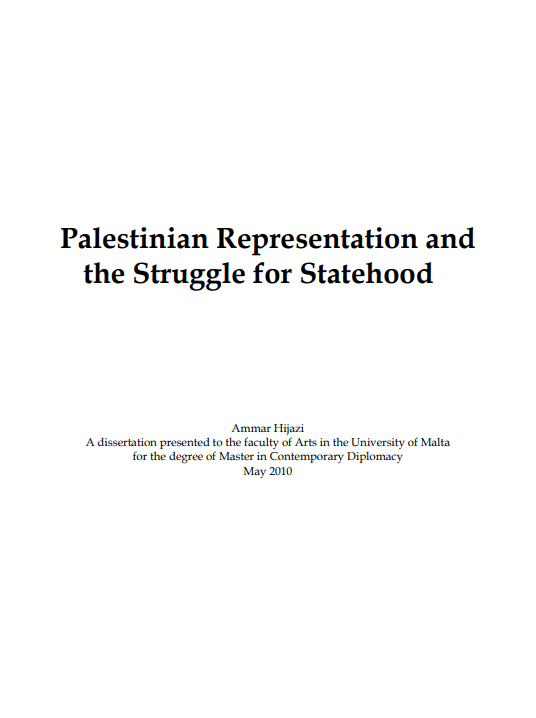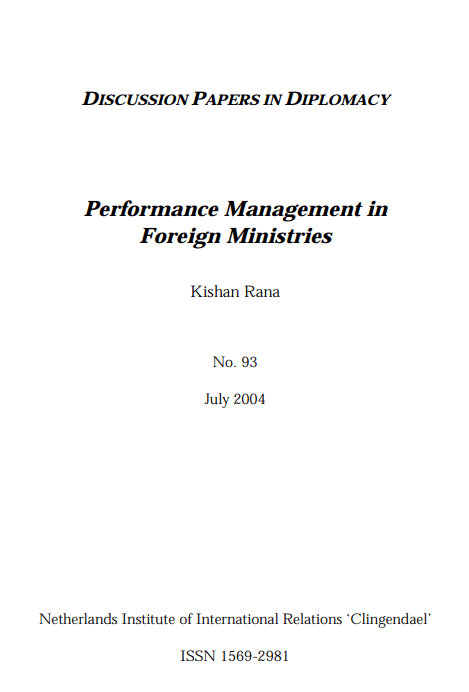Sanctions not only destroy the economy of a country but also threaten the existence of its population. They adversely affect all the structures of the state and society, and render difficult, if not impossible, the normal operation of services, including the Foreign Service.
In the case of Yugoslavia, the situation which arose following the introduction of sanctions was made exceptionally complex by two additional negative circumstances: (a) the secession of four of the former Yugoslav Republics and the break-up of the Federal State including its Foreign Service, and (b) the fact that Security Council Resolution 757 of 30 May 1992 contained provisions directly related to the diplomatic and consular missions of Yugoslavia.
As the four former Yugoslav Republics seceded, a great many officials and staff coming from these republics left the Federal Secretariat of Foreign Affairs and the diplomatic and consular missions. The Yugoslav system had ensured equal representation of the republics; thus, it should be noted that over 70 percent of Yugoslavia’s ambassadors were from these four seceding republics. Because the republics seceded before the imposition of sanctions, the Ministry of Foreign Affairs and many of its diplomatic and consular missions were understaffed when the sanctions were instituted. Furthermore, the ministry was in a difficult state which was first reflected when some heads of the diplomatic and consular missions did not act upon instructions from headquarters. Instead, they blocked the operation of the missions, leaving the missions and joining the Foreign Services of the newly formed states. After this shock it took a long time for Yugoslav diplomacy to restructure and prepare for the tasks facing it in a new, changed environment.
In addition to economic sanctions and sanctions on transport, paragraph 8 of the Security Council Resolution imposing sanctions on Yugoslavia also stipulated that “all states shall:
- reduce the level of the staff at diplomatic missions and consular posts of the Federal Republic of Yugoslavia (Serbia and Montenegro);
- take the necessary steps to prevent the participation in sporting events in their territory of persons or groups representing the Federal Republic of Yugoslavia (Serbia and Montenegro);
- suspend scientific and technical co-operation and cultural exchanges and visits involving persons or groups officially sponsored by or representing the Federal Republic of Yugoslavia (Serbia and Montenegro).”
Paragraph 8(a) was interpreted and enforced differently by individual countries. A great many of them recalled their ambassadors from Yugoslavia and insisted on Yugoslavia recalling its ambassadors. A number of countries neither recalled their ambassadors nor requested Yugoslavia to recall its ambassadors. During sanctions Yugoslavia had no heads of missions with the rank of ambassador, both as a result of the enforced sanctions on the reduction of staff in the missions, and even more, because ambassadors from the republics which had declared their independence left Yugoslavia.
While the sanctions were in place, there were only a few instances of accreditation of Yugoslav ambassadors in foreign countries, as the arrival of new Yugoslav ambassadors was not acceptable to most countries. A number of countries promised to give agreement for and to receive Yugoslav ambassadors. In fact, several Yugoslav ambassadors left to take up their duties in those countries (Indonesia, Tanzania, Israel) but after waiting in vain for months to present their credentials, were eventually forced to return to Yugoslavia.
The government of the Federal Republic of Yugoslavia, strictly abiding by its established rule of a four-year term of office for diplomatic staff, recalled its ambassadors from a number of important counties, but, due to the sanctions and the lack of will on the part of receiving states, was prevented from posting new ambassadors in those countries. As a consequence, for no serious reasons Yugoslavia was deprived of the opportunity to be represented at the ambassadorial level in those states. This situation could not be rectified until the total lifting of the sanctions.
Some states simply applied paragraph 8 of the Security Council Resolution to reduce the level of staff at Yugoslav diplomatic missions, which, in turn, had an adverse effect on the conditions of work of Yugoslav diplomacy. However, a number of countries enforced both the reduction of staff and the recall of ambassadors. The United Nations Secretariat insisted on reduction of the level of representation at the Yugoslav Permanent Missions to the United Nations in New York and to the United Nations Office at Geneva. The permanent representative or the head of mission was replaced in both cases by an ambassador/charge d’affaires ad intirim.
As far as consular posts were concerned, the majority of foreign states did not insist on a reduction of level of staff. Thus, all consuls-general continued to perform their duties except for those who completed their terms and were transferred back to Yugoslavia. However, during the sanctions no new consuls-general received exequatur or were accepted in that capacity.
The Yugoslav government made a serious error of judgement in this area at the time of the secession of the former Yugoslav Republics and immediately prior to the imposition of sanctions by the UN. The government temporarily suspended the operation of several consulates, mostly in Europe, which it could not reactivate without the consent of the receiving states. These states were unwilling to give consent while sanctions were in place.
In pursuance of paragraph 8 of the Security Council Resolution, the most radical measures, in excess of the specific measures detailed in the resolution, were taken by the governments of Malaysia, New Zealand, the United States and Canada. The governments of Malaysia and New Zealand actually ordered the closing of Yugoslav missions in their states and broke off diplomatic relations with Yugoslavia. Malaysia went so far as to impose a general ban on the entry of Yugoslav citizens to Malaysia. New Zealand prevented the Yugoslav Ministry of Foreign Affairs from taking over the records of the Yugoslav Embassy in Wellington.
The United States and Canada, as well as reducing the staff of the Yugoslav Embassies in Washington D.C. and Ottawa, ordered the closing down of all Yugoslav consulates in their territories. A particularly difficult situation arose in the United States, where Yugoslavia had several consulates-general because of the size of the United States and the many consular problems there. The burden of these problems fell entirely on the shoulders of the Washington D.C. Embassy Consular Section, which also had reduced staff. In the space of a couple of days all Yugoslav consulates had to shut down and their staff had to leave the United States.
It was not just the recall of ambassadors and the reduction of staff at diplomatic missions that prevented the normal work of Yugoslav diplomacy. Other conditions contributed considerably to deterioration. Demonization of Yugoslavia and the Serb people contributed, above all, to the tarnished reputation of the country of Yugoslavia and of its representatives. A number of countries undertook a series of unprecedented measures of isolation and discrimination against Yugoslav diplomatic staff, diplomatic missions and consular posts. These measures, inter alla, included the practice of not inviting Yugoslav diplomatic and consular staff to various functions and meetings for the diplomatic and consular corps, refusal by the authorities of receiving states to have contacts with Yugoslav diplomats, and limiting possibilities of contact even within the Foreign Ministry of the receiving state to a lower level. In some other states, despite the maintenance of diplomatic relations and the continued operation of diplomatic missions on reciprocal basis (the Netherlands, Germany, Austria, Belgium, Denmark, etc.), embassies of the Federal Republic of Yugoslavia were removed from diplomatic lists under the section for “embassies” and listed under “other representations.” Problems were encountered by the staff of Yugoslav missions regarding the issue of their ID cards. Because of these measures the Yugoslav Ministry of Foreign Affairs decided in 1994 to retaliate against these states and finally to assure the authors of these “solutions” that playing with diplomatic law cannot benefit any side.
Some states or their Foreign Ministries and diplomatic or consular missions, in their official correspondence with Yugoslav authorities, began to avoid the usual rules and formulas of diplomatic communication, resulting in further tensions and emotional attitudes taking an unnecessary and extremely negative direction. Some of this communication ceased when the Yugoslav authorities started simply ignoring the requests addressed by foreign missions in such a highly non-diplomatic manner. They openly refused to deal with these requests, especially concerning issues essential to diplomatic missions and their staff.
Representatives of some states having embassies in Belgrade went so far as to claim that they did not recognise Yugoslavia as such, and that such a state did not exist for them. This proposition was officially supported and evidenced also by decisions of the courts and other authorities from these countries. It is interesting to note that the majority of these states were the first to send ambassadors to Belgrade immediately after sanctions against Yugoslavia were lifted, and have accepted the appointments of Yugoslav ambassadors in their territories. Is this a tardy admission of a mistake made, an apology, or an attempt to forget unusually arrogant behaviour for the sake of common interests?
It should be noted that despite the sanctions, Yugoslav missions and Yugoslav diplomatic representatives in a number of countries enjoyed normal conditions of life and work and were not discriminated against or ignored in any way, as they were in the above-mentioned countries. However, they too, both in personal life and especially in their work, felt the same serious effects of sanctions as the entire Yugoslav diplomatic network world-wide.
Some of these serious effects include the banning of communications, particularly air services with Yugoslavia, and suspension of payments transactions. These measures severely affected the operations of a service which depends on mobility and extensive contacts with the world. The most drastic example of this disadvantage was failure by the Yugoslav delegation to attend an important hearing before the International Court of Justice, which was not scheduled ahead of time. Therefore, Yugoslavia was represented at the hearing only by its charge d’affaires in The Hague and by a legal representative from Jerusalem who was able to arrive in The Hague within twenty-four hours, which the Yugoslav delegation could not.
A specific additional obstacle was presented by the visa regimes introduced by many countries immediately after sanctions were imposed and while they were in place. They suspended bilateral conventions with Yugoslavia on the abolition of visas and slowed down or made more complicated processing of entry visas for Yugoslav citizens.
Except for contacts between the Foreign Ministry and foreign missions in Belgrade and the receiving states – which were, as already pointed out, reduced to a minimum in many countries – Yugoslavia had few opportunities to take advantage of special missions while sanctions remained in force. Yugoslav delegations were reluctantly received in a number of countries, while few delegations from abroad came to Yugoslavia. The exceptions were the various international organisations involved in the solution of the Yugoslav crisis.
In 1992-93, the president of Yugoslavia authorised so-called “special representatives” in a few European countries; representatives who acted alongside and in parallel with the diplomatic missions of Yugoslavia. They were eminent public figures, academicians and university professors of high standing in the receiving states. Their performance in public relations and contacts with the authorities were sometimes much better than that of ordinary diplomatic representatives. While the contributions of special representatives in France, and Germany in particular, were rather modest, primarily due to resentment and a less co-operative attitude by the Foreign Ministries and governments of these countries, the special representative in Rome managed, in co-operation with the Yugoslav Embassy there, to arrange a Yugoslav-Italian meeting at the highest level. Of course, this achievement was also the result of a much better understanding on the Italian side for the problems faced by a neighbouring country and of a much less formal approach by Italy to a country under sanctions.
Incidentally, Western European countries were highly restrictive in their contacts with officials from Yugoslavia, including officials from the Ministry of Foreign Affairs. For example, the British Foreign Office refused to meet even informally with a Yugoslav assistant foreign minister on a private visit to London. The same thing happened in Germany, where the prime minister of a provincial government refused to see a Yugoslav official of the same rank during his visit (allegedly, on instructions from the German Foreign Ministry). At the same time, however, the Foreign Ministries of Germany, France and Austria accepted even official visits from Yugoslav assistant foreign ministers in charge of consular affairs.
During the application of sanctions, Yugoslavia and its Foreign Service made a number of very useful contacts with members of Parliaments of some countries, the very same countries whose governments had a restrictive attitude towards Yugoslavia. (That national Parliaments had a much greater understanding for Yugoslavia than their governments is demonstrated by the fact that unlike the Security Council and General Assembly of the United Nations, the Inter-Parliamentary Union, except for a few major attempts by some countries to deny it, has explicitly recognised the continuity of Yugoslavia.)
By preventing Yugoslavia and Yugoslav diplomacy from participating in the work of international organisations, including suspension from the Organisation for Security and Co-operation in Europe, General Assembly Resolution 47/1 totally isolated Yugoslavia from an important process in international relations. Considering that only two states have gone so far as to sever diplomatic relations with Yugoslavia, the recall of ambassadors and reduction of the diplomatic staff in a number of countries have not had such a bad effect on Yugoslav diplomacy as its isolation in international organisations. To make matters worse, Yugoslav representatives were not even allowed to attend meetings scheduled to discuss their own country. Although this measure was regarded in those organisations more as a punishment than as a legitimate statutory decision, removal of a member country from an organisation surely cannot be productive for any of the countries involved. Hence, the dialogue between Yugoslavia and these organisations sometimes resembles the dialogue of the deaf.
Although it has been two years since sanctions were lifted, Yugoslavia has not yet been reintegrated into the international community. Specifically, Yugoslavia has not yet been enabled to participate in international organisations, universal or regional. In fact, sanctions remain in place in the form of a “outer wall” of sanctions, on which there is no formal decision but the consequences of which are unambiguous and tangible.
One of the results of such a policy is the radicalisation of public opinion in Yugoslavia, i.e., a marked rise in support for political parties interpreting UN measures as a conspiracy against Yugoslavia and concluding that Yugoslavia has no place in such an organisation. This is best illustrated by the results of the two rounds of presidential elections in Serbia in December 1997. The causes of these election results should be sought also in the way in which sanctions were introduced and extended, as well as in their very nature and purpose. Sanctions affect the masses and often produce precisely opposite effects from those intended. Damage is also done to neighbouring and other countries through the interrupted flow of economic traffic.
The various levels of enforcement of sanctions and co-operation with the UN Sanctions Committee have demonstrated that even the specific items detailed in the relevant Security Council Resolutions were implemented in ways dictated by the political and economic interests of the countries sitting on the committee. There is a separate committee at the UN for each country under embargo and each of these committees has its own rules of procedure and policy. However, this is not the time or place to discuss the inconsistency of the UN Sanctions Committee on Yugoslavia in implementing the Security Council Resolutions, the unwieldy procedure, the delays and the refusal to grant authorisations in even the most urgent humanitarian cases. Suffice it to mention the examples of the prohibition of the import of heating gas and the refusal to allow the transport of oxygen for a hospital, on account of which a dozen prematurely born babies died.
Yugoslav diplomacy had contact with the Sanctions Committee only through its Permanent Mission to the United Nations in New York. However, in view of the fact that applications, as a rule, were made directly to the Committee by the importing country, the experiences Yugoslavia gained in that context cannot be viewed as positive.
There is another type of sanctions which were not described in any Security Council Resolutions but which Yugoslav diplomacy experienced as a major impediment to its normal work. That was the ignoring and denying of the rights of Yugoslavia as a state, party to a number of international multilateral agreements. Regardless of the fact that the UN Secretariat and the depositories of these treaties consider Yugoslavia to be a full party to the treaties, Yugoslavia was prevented on several occasions from participating in the review conferences of the party states envisaged under these treaties. Oddly enough, the treaties are the Non-Proliferation Treaty (NPT), and international human rights covenants, treaties in the acceptance and implementation of which the international community is vitally interested.
The activities of every foreign service is determined by internal developments, its policy and by its international position. This is true of the Yugoslav Foreign Service in general and during the application of sanctions in particular. Were its activities so targeted as to achieve optimum effect under the given circumstances, or was there room for even more intensified and flexible forms of activity? Were all possibilities offered by the regular diplomatic channels, although limited and reduced during the time of sanctions, fully utilised? Or should informal contacts and co-operation have been more used, including greater use of para-diplomacy? These questions all deserve an in-depth analysis.
It would be incorrect to say that all opportunities were optimally used. In particular, the recall of some ambassadors for formal reasons only and the failure to appoint heads of missions and to fill vacancies at the missions in the countries where it was possible, were ill-considered. The opportunity was missed to better equip the diplomatic network for the critical period of sanctions and isolation of the country.
It is generally known that in the media war which followed the Yugoslav crisis, Yugoslavia and its diplomacy were the weaker and less organised side, even though the struggle for the hearts and minds of the public, especially at such a critical time, was one of the most important tasks and most decisive factors. While in the media the Yugoslav effort was weak, the contribution of Yugoslav diplomacy to the efforts aimed at a peaceful settlement of the conflict, at general stabilisation in the region and, therefore, at a formal lifting of sanctions, is more evident, particularly in light of the obstacles and restrictions it had to overcome.
Very soon after the lifting of sanctions, Yugoslavia has succeeded in fully normalising relations with most countries of the world, and in a very short span of time the number of ambassadors accredited in Belgrade has risen sharply. The same is true of Yugoslav ambassadors, although the number of their accreditations is slightly smaller, solely because of hesitation on the Yugoslav part. However, re-integration of Yugoslavia into international organisations and the so-called “outer wall” of sanctions still remain a problem facing Yugoslavia’s Foreign Service and also Yugoslavia as a whole.













